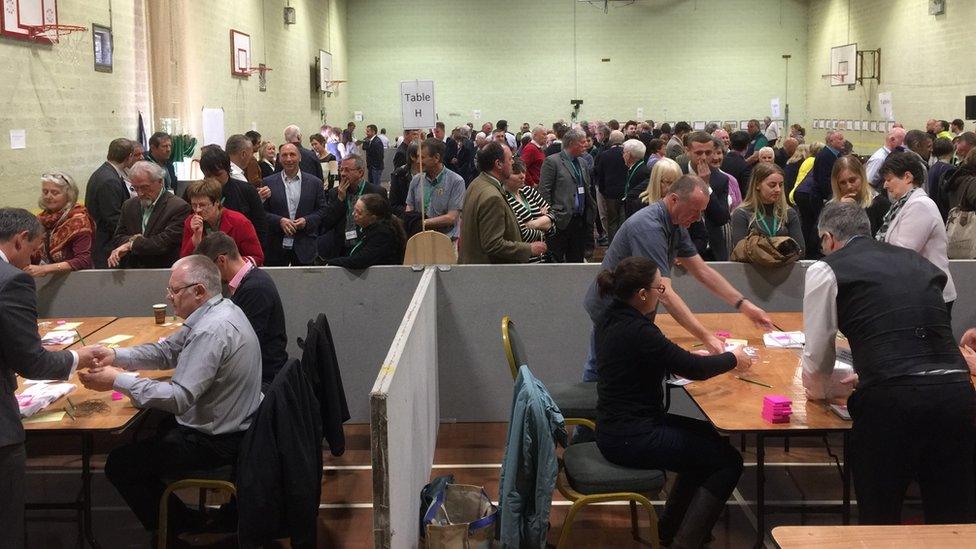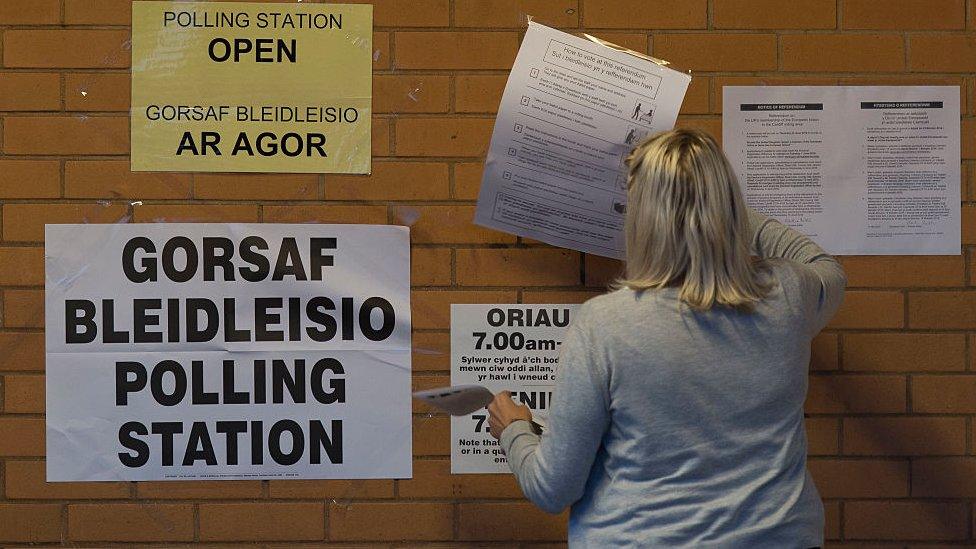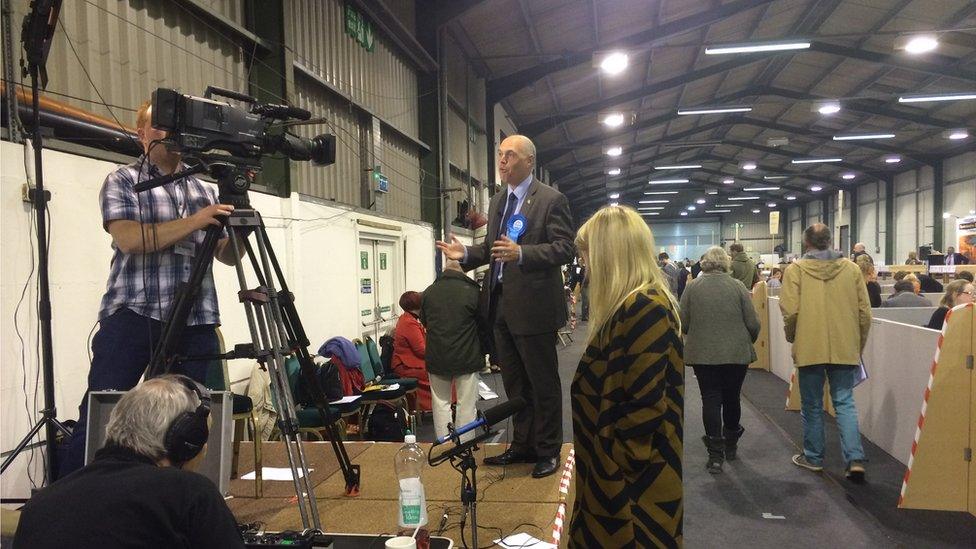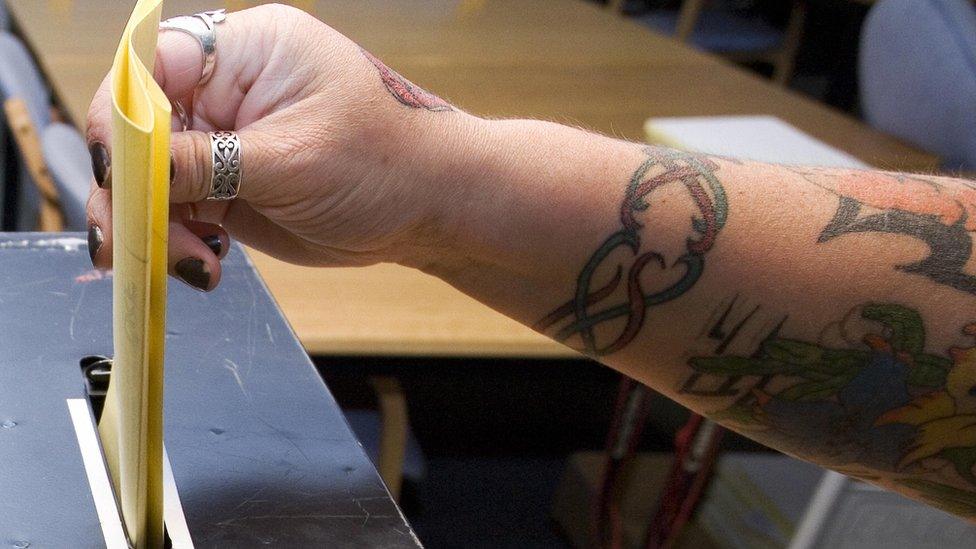Who are the people who make the election happen?
- Published

Many people who worked at the local council election in May will return to count votes for the general election
They're the nuts and bolts of the general election with some of them putting in 24 hour shifts. But who are the army of people who will turn out to sit at polling stations and count votes on Thursday?
Across the country buildings like schools and churches will be turned over to the execution of democracy.
For 15 hours people will sit in each of the UK's 50,000 polling stations asking every single voter their address before handing them their ballot paper.
And for some of those at the polls it will be a 24-hour working day, as they go from polling stations straight to count the votes they have collected until the early hours of the morning.
But who are these thousands of people who turn up for one day's work every few years to make sure you can cast your vote? How do the counters keep count? And how much do they get paid?
In Wales, wages vary from council area to council area. In two of Wales' biggest councils, presiding officers - who run polling stations - get paid £195 in Cardiff and £215 in Swansea. While polling clerks - who "meet and greet" on the day - get £134 in Cardiff and £135 in Swansea.
And the overnight counting staff claim £110 in Cardiff and £135 in Swansea.
Some work both at the polling station in the day and at the overnight count.
In Pembrokeshire, the county will see around 500 people working on the election - from polling station clerks to those setting up partitions at the count - working on collecting and counting votes for two constituencies, Preseli Pembrokeshire and Carmarthenshire West and South Pembrokeshire.

The task is overseen by acting returning officer Ian Westley, also chief executive of Pembrokeshire County Council, with the help of three permanent staff and "an army of people who sign up to help".
Made up of council employees, ex-council workers and other "reliable individuals", around 350 people will work at Pembrokeshire's 150 polling stations from 6.30 in the morning until 10 at night.
And the count itself will have around 150 people going through the ballot papers.
Sian Waters started working at elections 30 years ago and is now deputy manager for the electoral team in Pembrokeshire.
"I was around 18 when I started working at the council," she said.
"A message went around for people to be polling clerks at the elections so I thought why not. After a while I started doing the counts too.
"You get hooked. Once I had sat there all day collecting the votes I always wanted to know what the result was going to be."

Pembrokeshire council staff will prepare the industrial unit where the count is held by installing temporary heaters and facilities
Among the biggest challenge polling staff face on the day is keeping themselves amused and awake.
"You can't leave the polling station for the whole time so it can be boring and you have to remember to bring enough food or you have to get a takeaway," said Mrs Waters.
"You are allowed to read, as long as it is not something political which could be seen as influencing people's votes."
And for counting staff the biggest problem is, unsurprisingly, keeping count.
Mrs Waters added: "We used to count in bundles of 50 but as the evening wore on you start losing count and it is always around 46 or 47, so we now count in bundles of 10. It means we can keep our accuracy even as people get more and more tired.
"Fatigue is the biggest challenge on the day."
- Published2 June 2017

- Published5 June 2017
